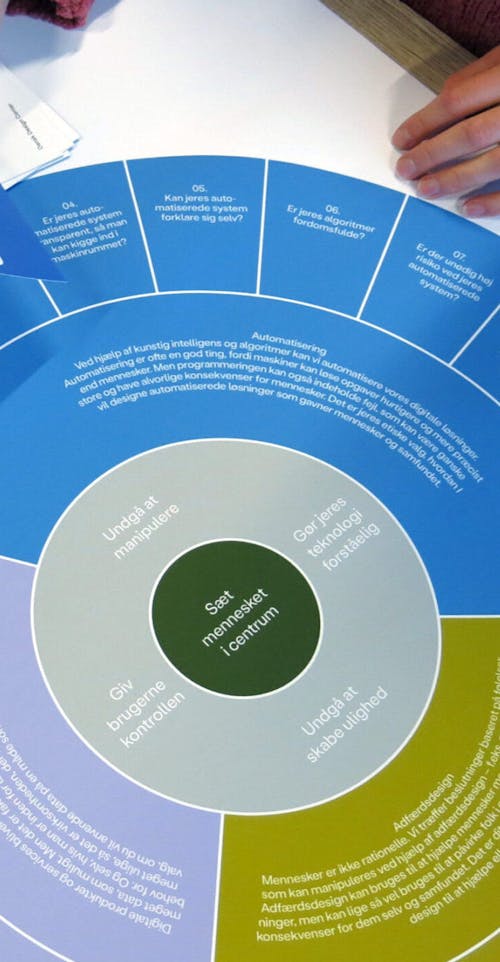
Log 2: What Is Ethics?
09. Dec 2021Based on the book Kreativ Etik (Creative Ethics), we attempt to define ethics as a concept and use these definitions to set the overall direction for the learning process in The Digital Ethics Compass
By Peter Svarre
This article is published in connection with The Digital Ethics Compass project
The word ‘ethics’ is frequently used in contemporary societal debates. We expect companies to behave ethically, we set up data ethics councils and companies are preparing guidelines for the ethical use of artificial intelligence. Nevertheless, only a few people really have a clear understanding of what ethics is actually all about. Is ethics the same as morality? Is ethics about following some rules? Is there a difference between ethics and legislation? Can companies’ ethics be written down on a piece of paper or printed onto a mousepad?
We have found some suggestions for a clear definition from the book Kreativ Etik (Creative Ethics) written by the multi-year member of The Danish Council of Ethics, Jacob Birkler. He defines ethics as “… what I or we have to guide us when we interact with each other.”
Ethics is not necessarily about rules or specific guidelines. It is about having an ethical awareness and some mental tools available that assist in solving the conflicts and dilemmas you encounter when interacting with other people or when you – as with digital services – design something that others will use.
Where legislation and written rules specify what one HAS to do, ethics and etiquette are the unwritten rules governing what one should do.
A classic example of this is the issue of being pro or con active euthanasia, where on one hand you want to preserve the life of patients for as long as possible but on the other hand, you also want to give people the freedom to decide if they want to end what may be a painful or extremely limited life.
Birkler’s definition of an ethical dilemma is as follows: “The ethical dilemma is a difficult conflict of values, where one has to make a single choice when faced with multiple alternative actions and when this choice has consequences for other people.”
We have based our work on The Digital Ethics Compass on this definition and it has provided us with some guidelines:
- We do not attempt to transfer a certain code of conduct to the participating companies. Ethics is not about “learning the right rules”. Ethics is about becoming more ethical and having the personal capacity to solve difficult conflicts of value.
- The most important goal of the project is to provide companies and employees with a language and some tools needed to be able to discuss ethical questions.
- Ethics is about competencies needed to solve conflicts of value, and therefore our learning process will include many practical exercises that teach people how to manage such situations.
- Our learning process must cultivate the ability to doubt and ask questions in new ways. We should not seek consensus, on the contrary, we should exemplify how there will always be conflict and doubt when multiple people are in the same room. However, we should highlight conflict and doubt as positive characteristics that can be managed with the right tools.
- We must talk about the boundaries between law and ethics in our learning process. It must be made clear to the participants that there is a difference between what a company has to do and what a company should do.

Can’t get enough of design and innovation? We hear you. And we have you covered.
Sign up for our newsletter to get the latest from our world delivered straight to your inbox.
Sign up for the ddc newsletter



